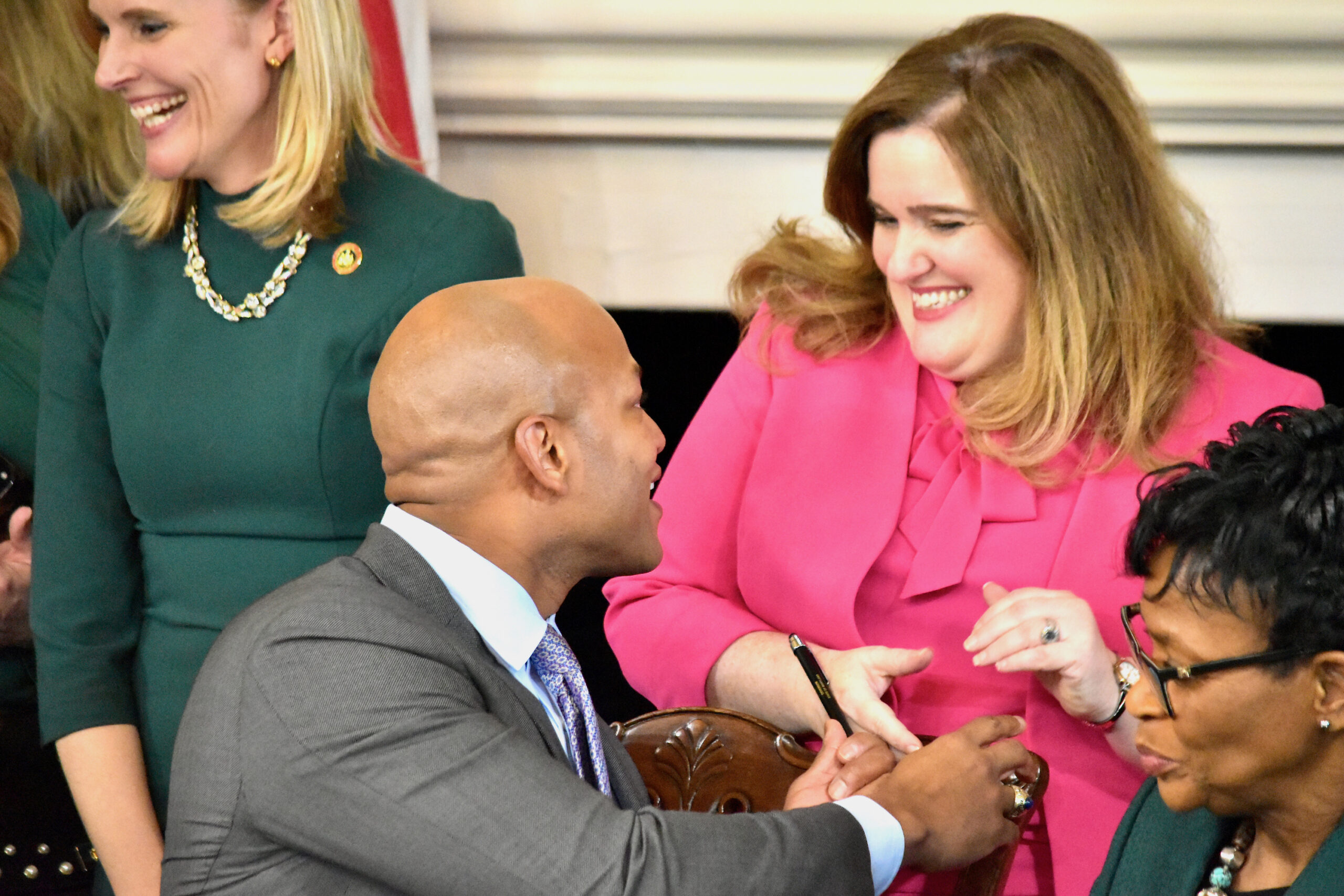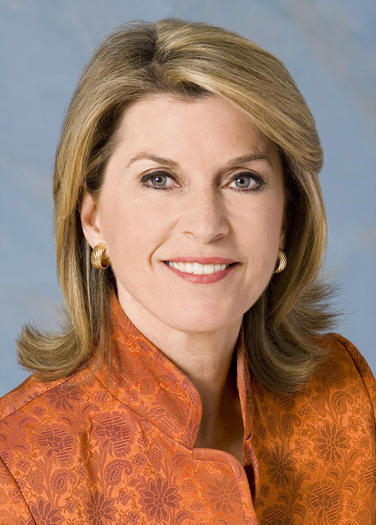Anti-Harassment Efforts Advance on Two Fronts
By Bruce DePuyt
The women’s caucus is recommending ways the Maryland General Assembly can do more to prevent sexual harassment in Annapolis and to investigate allegations of inappropriate conduct that get filed against elected officials.
“The women’s caucus has been working since the summer of 2016 on this issue,” said Del. Ariana B. Kelly, (D-Montgomery County), a deputy majority whip in the House of Delegates and head of the Women Legislators of Maryland. “Our goal is to take advantage of the moment right now … to make Maryland the best political environment we can make it, and really eradicate harassment to the best of our ability.”

Jeanne D. Hitchcock
Kelly said recommendations will fall into three broad categories:
— Training lawmakers and staff on what behavior constitutes workplace harassment, and improving how claims of inappropriate conduct get reported;
— Investigating claims against individuals and holding offenders responsible; and
— Prevention.
Among the specific recommendations already formulated: increasing anti-harassment training, making training attendance subject to public records search, expanding the list of individuals authorized to receive reports of harassment, and expanding the list of disciplinary actions for legislators found to have engaged in harassment.
The legislature’s presiding officers — Senate President Thomas V. Mike Miller Jr. (D-Calvert) and House Speaker Michael E. Busch (D-Anne Arundel) — on Wednesday announced the membership of a Workplace Harassment Commission, a panel that will review state policy, solicit input from experts and the public, and make recommendations on how to reduce inappropriate conduct in all three branches of state government.
“We have tried to stay ahead of the curve in implementing national best practices in the Maryland General Assembly to prevent harassment of any kind,” Busch said. “This esteemed panel will help us continue to push forward to make this the safest legislative workplace in the country.”
The first meeting of the commission will be Feb. 16. Meetings will be open to the public.
The panel will be chaired by Jeanne D. Hitchcock, a former O’Malley cabinet official who now serves as a vice president at Johns Hopkins University.
Under former Gov. Martin O’Malley (D), Hitchcock was chief legislative officer and secretary of appointments.
She previously served as deputy mayor of Baltimore from 2000 to 2006, as an assistant attorney general, as a corporate attorney and as COO with the national office of the NAACP.
The other panel members are:
—Kathleen Cahill, an employment attorney in Baltimore.
—Diane Croghan, chief of staff to Anne Arundel County Executive Steve Schuh (R) and former chief of staff to the minority leader of the House of Delegates.
—Lisa Jackson, managing member of Jackson Edwards LLC, a private firm which provides consulting and legal services to governmental entities and small and minority businesses. She previously served as director of intergovernmental relations for Prince George’s County, deputy legislative officer in the O’Malley administration, and associate general counsel to the Maryland-National Capital Park and Planning Commission.
—Lisae Jordan is executive director and counsel of the Maryland Coalition Against Sexual Assault and director and founder of the Sexual Assault Legal Institute. She previously served as legislative counsel for the Maryland Children’s Alliance.
—Mary Keating, an employment attorney in private practice.
—Amanda LaForge, an attorney who served as chief counsel to the Democratic National Committee from 2004 to 2009, and previously served as an assistant attorney general and in the Office of the Maryland Secretary of State.
—Celeste Morgan, executive director of the Baltimore County Human Relations Commission from 1992 to 2011, who held a variety of positions in state government and was a Baltimore city elementary school teacher.
—Mike Morrill, the COO for The Learning Together Co., an education contractor. He served as state director to former U.S. Sen. Barbara Mikulski (D) and communications director to former Gov. Parris Glendening (D).
—Peggy Naleppa, the retired president and CEO of Peninsula Regional Medical Center and Peninsula Regional Health System in Salisbury.
—James Robey, who has served as a state senator, Howard County executive and Howard County chief of police.
—Susan Russell, who retired in 2006 after a 31-year career with the Maryland Department of Legislative Services and its predecessor agency, the Department of Legislative Reference. She also clerked for one of the first female judges appointed to the bench in Maryland and practiced family law in Prince George’s County.
—Elisabeth Sachs, managing partner at Long Point Strategies LLC, a public policy consultancy. She served as executive director of the Job Opportunities Task Force from 2015 to 2017, as program director of EARN Maryland from 2013 to 2015, as interim secretary of the Maryland Higher Education Commission in 2011, and as director of policy and planning in the Maryland Department of Labor, Licensing and Regulation from 2007 to 2011.
—Sophia Silbergeld, director of membership and member relations at the Greater Baltimore Committee. She worked as a campaign consultant at the firm of Martin-Lauer Associates LLC for a decade and as assistant to the director of government affairs for Baltimore County.
Hearing from national experts
The women’s caucus held a panel discussion Wednesday morning, with national experts offering advice on how to reduce and investigate claims of workplace harassment.
One possible recommendation from the women’s caucus — a ban on lawmakers dating staff or interns.
Kelly said it’s important that sexual harassment claims be investigated quickly, to protect both the accuser and the accused.
“We don’t have an independent investigator,” she said. “That means that rumor and innuendo can have a really negative impact. If I’m a legislator that’s falsely accused of harassment, I want a system in place, where there are independent investigators that I trust, who are doing a report separate from the political process, and making recommendations based on that — in an expedited fashion.”
The Maryland Government Relations Association, which represents State House lobbyists, has partnered with the women’s caucus in strengthening efforts to crack down on abusive behavior in Annapolis. Female lobbyists, many of whom are sole proprietors, are considered to be particularly at risk of mistreatment in the sometimes boozy, boys-club culture of state capitols.
Angela Breck contributed to this report.



 Creative Commons Attribution
Creative Commons Attribution